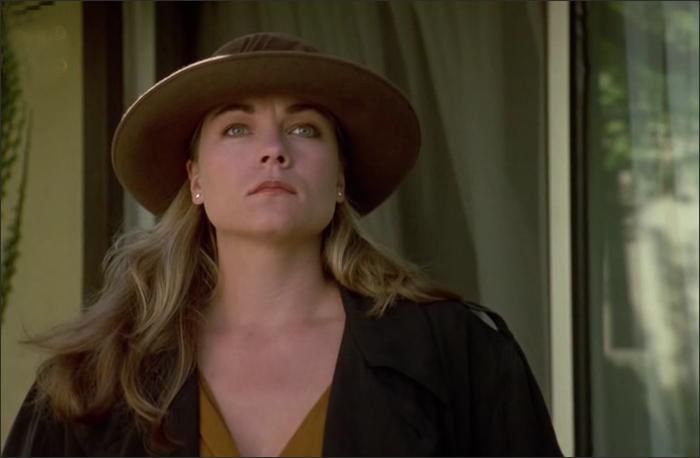
In Cold Heaven (1991) director Nicolas Roeg explores again themes of the supernatural, faith and adultery, utilizing his signature brand of cross-cutting. Allan Scott, who wrote a total of five films directed by Roeg, penned the screenplay based on Brian Moore’s novel of the same name. For years this hidden gem in Roeg’s filmography has languished in obscurity, only receiving an upgrade from laser disc to Blu-ray in 2020 from Scorpion Releasing.
Though Cold Heaven retraces similar ground as Don’t Look Now (1973) and Track 29 (1988), Roeg introduces his first significant use of voice over. In the scenes following Dr. Alex Davenport’s (Mark Harmon) death, Marie Davenport’s (Theresa Russell) internal monologue is given an external voice due to this device. Here Roeg locks the viewer into the mind of the character, even as that character seemingly traverses the space of some important expository scenes. Linking the voice-over device to trauma and using it nowhere else in the film lends that moment a tremendous amount of dramatic power. Additionally this allows the filmmakers the chance to better explain the relationship that Marie has to her husband, her lover Daniel Corvin (James Russo) and to the Catholic Faith.
Cold Heaven isn’t so much a thriller in the classical sense as it is a highly expressionistic exploration of the way that the faithful both see and perceive. Marie resists her mind’s instinctual faith based reading of events, desperately clinging to the scientific and the logical. This internal conflict which flashes across the screen in Roeg’s signature montages is where the tensions in the film live, where shock and awe reside. Marie’s conscious rejection of Catholicism is antithetical to that of Father Niles (Will Patton) and Sister Martha (Talia Shire). These two characters, bastions of Catholic tradition, bring a stabilization to Roeg’s fractured montage, reflecting the faith that, in the end, Marie embraces again.
Cold Heaven may not be Roeg’s best work, but it is the most coherently narrative of his films, in the traditional sense, that still utilizes all of his stylistic trademarks. The Witches (1990) may be more generally mainstream but that is because it lacks the overt psychosexual mania that permeates Roeg’s editing. Placing Cold Heaven in the context of Roeg’s career as a director it’s clearly one of the final gasps of one of cinema’s most iconoclastic stylists.
